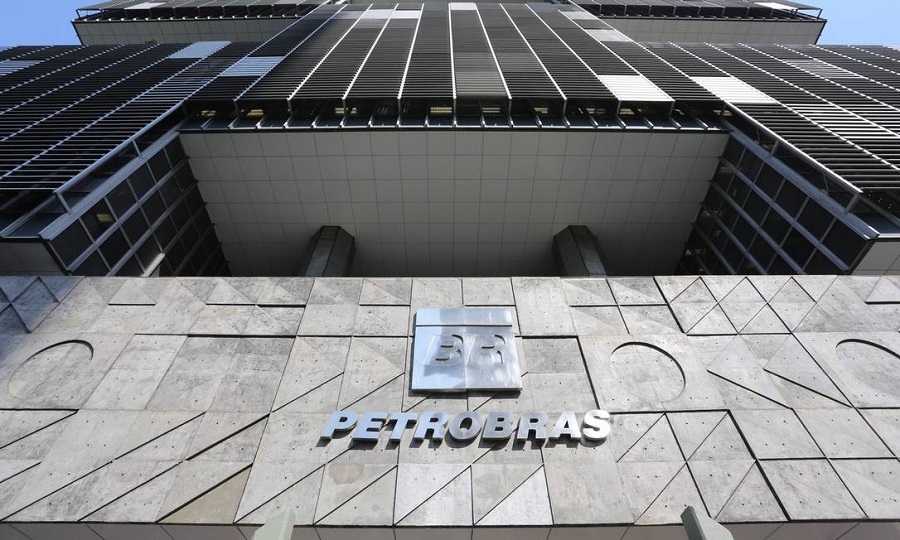RIO DE JANEIRO, BRAZIL – Soaring fuel prices are one of the main factors driving Brazilian inflation, triggering a cascade effect on other prices and criticism of the federal government. In September, Brazil accumulated a 12-month price hike of 10.25%, surpassing double digits for the first time since 2016.
“It’s very easy: gasoline increased, it’s Bolsonaro’s fault. I now want to privatize Petrobras. I’m going to meet with the economic team to see what can be done,” the President said during an interview with an evangelical radio station in the Northeast state of Pernambuco.

According to the National Petroleum and Fuel Agency (ANP), gasoline prices increased 39% over the past year, while the price of cooking gas has risen 34% since March. The company’s pricing policy, responsible for more than 1/3 of the fuel market and dominant in the gas area, is tied to the variation of the international oil price and the price of the dollar.
“I cannot control the price of fuel. But when it rises, it’s my fault. The price of gas increases and it’s my fault,” Bolsonaro complained, highlighting a reduction in the taxes charged by the federal government on gasoline sales.
The President’s statement reinforced an idea that Economy Minister Paulo Guedes presented on Wednesday in Washington, where he attended the International Monetary Fund’s (IMF) annual meeting.
Guedes proposed as an alternative the sale of shares of the company – majority state-owned – to distribute resources among the most vulnerable population.
“Every time fuel prices rise, Petrobras’ shares are worth more. Sell some of those shares and allow the most vulnerable to buy natural gas,” Guedes proposed, justifying the country’s inflation as part of a global phenomenon.
The surprise announcement that the government intends to sell Petrobras, something unlikely, since it would require a broad consensus in Congress, could be a strategy by Bolsonaro to create a distraction while trying to absolve himself of responsibility for the hike in prices and fuels in Brazil, according to Marco Antonio Teixeira, professor of Political Science at the Getulio Vargas Foundation.
“To introduce the privatization discussion now is not trivial because it will create tremendous political debate, at a time when the government is facing the final report of the Senate’s Covid CPI inquiry into the pandemic,” Teixeira said.
CHANGES
Any concrete intention to privatize the oil company, which has caused the President many a headache before, was unknown until yesterday. In the past, Bolsonaro has tried to intervene in its pricing policy.
In February, Bolsonaro ousted Roberto Castello Branco from the company’s presidency and appointed General Joaquim Silva e Luna. The change was preceded by weeks of criticism by the President due to progressive increases in fuel prices. Silva e Luna was president of the Itaipu hydroelectric dam and is a man trusted by the far-right leader, a former army captain.
Bolsonaro warned that the company was pursuing increases “outside the curve,” and said he intended to intervene in the oil company’s pricing policy.
Rising inflation in Brazil, coupled with a modest drop in the unemployment rate – which still affects 14 million Brazilians – pushed the President’s disapproval rating to a record high. Last September, 53% of Brazilians disapproved of Bolsonaro, according to a survey by Datafolha consulting firm.
The disapproval rate poses a challenge for Bolsonaro, who will seek reelection in 2022. Most polls show him well below ex-president Luiz Inacio Lula da Silva, who, if elections were held today, would defeat him in a second round runoff vote.
In 2018, during the campaign that led him to the presidency, the President claimed to be against disposing of Petrobras. Bolsonaro, a former military officer who despite his purported switch to liberalism in 2018, during his congressional career embraced nationalist and protectionist views on the economy, considered the company “strategic” and said he would not like to privatize the company.
“When Bolsonaro fired the president of Petrobras in February and claimed that he was unable to control prices, he bought himself a problem that did not depend exclusively on him. And prices continued to rise,” the FGV professor explained.
Teixeira said that considering the privatization of Petrobras may be a misreading of the solution to contain prices, which are becoming a “bomb for the popularity” of the Brazilian president.
In addition to the increase in the international price of oil, the analyst said that part of the drop in the Brazilian real, one of the most depreciated currencies in 2021, also hinges on domestic factors.
“There is a rapid impoverishment of the population, a deterioration of labor conditions and an inflationary outlook that does not suggest a rapid reversal. The government believes that the problem lies elsewhere, but Brazil has serious exchange rate issues due to political and legal instability, and this ultimately has an impact on fuel prices,” Teixeira added.

